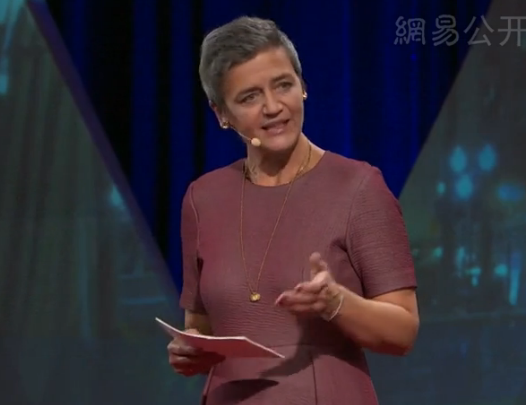Let's go back to 1957.
让我们回到1957年。
Representatives from six European countries had come to Rome to sign the treaty that was to create the European Union.
六个欧洲国家的代表来到罗马,签署成立欧盟的条约。
Europe was destroyed. A world war had emerged from Europe.
世界大战起于欧洲,使欧洲惨不忍睹。
The human suffering was unbelievable and unprecedented.
人民承受着难以想象和前所未有的苦难。
Those men wanted to create a peaceful, democratic Europe, a Europe that works for its people.
那些代表想建立一个和平、民主的欧洲,一个为欧洲人运作的欧洲。
And one of the many building blocks in that peace project was a common European market.
该和平项目中的一个组成部分就是建立欧洲共同市场。
Already back then, they saw how markets, when left to themselves,
早在那时他们就已知道,如果不监管市场,
can sort of slip into being just the private property of big businesses and cartels,
市场就会沦为大企业和联合集团的私有财产,
meeting the needs of some businesses and not the needs of customers.
只满足一些企业的需求,而非消费者的需求。

So from our very first day, in 1957, the European Union had rules to defend fair competition.
所以,在1957年,从欧盟建立的第一天起,欧盟就制定规定来维持公平竞争。
And that means competition on the merits,
也就是按水平竞争,
that you compete on the quality of your products, the prices you can offer, the services, the innovation that you produce.
根据产品品质、价格、服务和创新性来竞争。
That's competition on the merits. You have a fair chance of making it on such a market.
这就是根据水平竞争。在这样的市场,你有公平的机会崭露头角。
And it's my job, as Commissioner for Competition, to make sure that companies who do business in Europe live by those rules.
身为市场竞争事务专员,我的工作就是确保在欧洲做生意的企业遵守这些规范。











